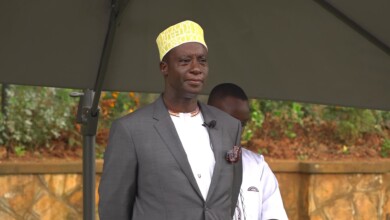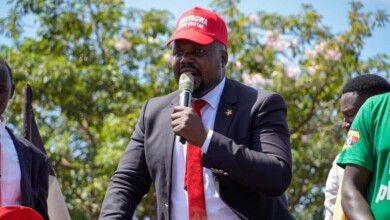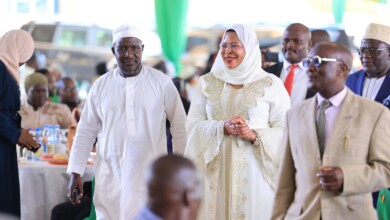UMSC dialogues with Sheikh Swaleh Mubiru over controversial teachings
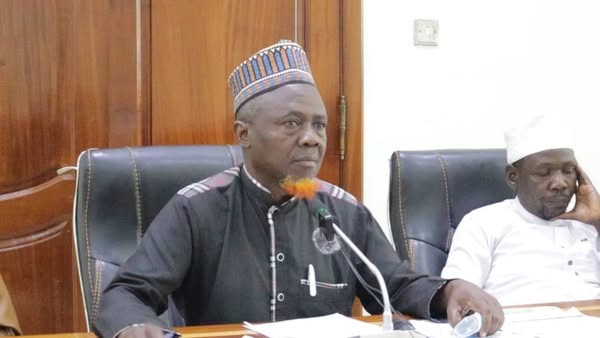
By Ahmed Idriss
The Uganda Muslim Supreme Council (UMSC) National Management Committee, under the stewardship of Sheikh Ramadhan Mubaje, the Mufti of Uganda, held dialogue with Sheikh Swaleh Mubiru Tuesday October 06th, over his recent theological discourses that have sparked wide discussion and confusion among sections of the Muslim community.
Some of these debates, particularly on social media, degenerated into personal attacks against Sheikh Mubiru, prompting the UMSC management to invite him for a clarificatory meeting.
The session was attended by UMSC departmental heads and guests, including Sheikh Uthuman Kibuuka, Sheikh Nadawi Galimaka Kaluuma—both representing Jamuiyyat Tabliigh Da’aawa Assalafiyya based at Nakasero Mosque—and Shafik Kayondo, who accompanied Sheikh Mubiru.
The Mufti highlighted the challenges facing the global Muslim community—many arising from individuals pursuing selfish, material, or political interests, or seeking supremacy in interpreting Islamic teachings.
“This has caused divisions, conflicts, and confusion among believers,” Mubaje remarked.
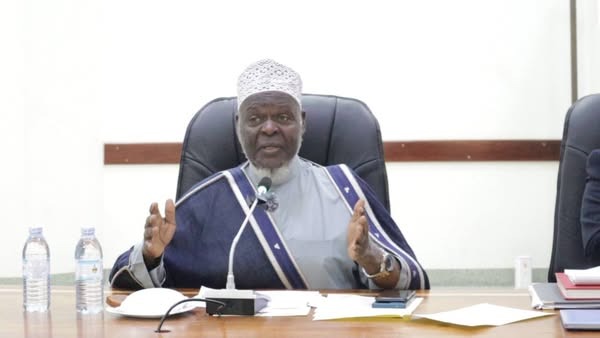
He recounted that during a recent visit to Türkiye, he came across audio and video clips in which Sheikh Mubiru expounded on Islamic theology in ten categories.
“I found the explanations erroneous and unclear, a view shared by many other Muslim scholars,” he said.
Sheikh Mubiru acknowledged being behind the audios, revealing they were from a sermon he had delivered during his regular Darusu (religious session) at Aldinah Mosque in Kampala, where he has preached for over 35 years.
Mubiru told the meeting that he is a graduate of Islamic Education from a Saudi Arabian higher institution of learning and noted that he had previously served at UMSC during the tenure of the late Mufti Sheikh Saad Ibrahim Luwemba in the 1990s.
When asked whether he still stood by his controversial teachings, Sheikh Mubiru responded: “I am ready to change if I am convinced by facts drawn from the Holy Qur’an.”
During the dialogue, the Mufti asked whether Mubiru believed in the four established sources of Islamic jurisprudence developed by consensus among classical scholars. Sheikh Mubiru affirmed, but insisted that divine law originates solely from the Qur’an.
This assertion sparked reactions from several clerics, including Sheikh Salim Bbosa (Deputy Director of Sharia), Sheikh Uthuman Kibuuka, and Sheikh Nadawi Kaluuma. They accused Sheikh Mubiru of taking Qur’anic verses out of context, denying the authenticity of Hadith, and misleading the faithful.
Sheikh Mubiru denied these claims, reiterating that true Islamic teachings are those mentioned explicitly in the Qur’an.
Dr. Sheikh Ziyad Swaleh Lubanga, the Director of Sharia, provided a historical background, explaining that similar beliefs—known as Quraniyuni—were propagated in the past by individuals who rejected Hadith and other sources of Islamic jurisprudence. Sheikh Juma Bakhit Cucu also shared his experience encountering such groups while studying in Tanzania, noting that these ideas had long been refuted by mainstream scholars.
Mubaje emphasized that such ideologies do not add value to the spiritual growth or practical life of Muslims.
A follow-up meeting is planned for Monday, October 13, 2025, to continue discussions on theological issues.



